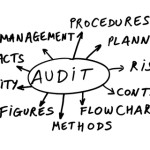 For most organizations, the “Right-to-Audit” is a staple in their advertising agency agreements. Worded properly, this important contract language provides the company an opportunity to periodically check ad agency compliance with contract terms, review financial support that should agree to agency billings and to otherwise evaluate various performance metrics.
For most organizations, the “Right-to-Audit” is a staple in their advertising agency agreements. Worded properly, this important contract language provides the company an opportunity to periodically check ad agency compliance with contract terms, review financial support that should agree to agency billings and to otherwise evaluate various performance metrics.
Yet despite the inclusion of this vital risk management clause and the rights that it confers, far too few organizations actually follow through to perform the testing which would otherwise provide stakeholders with comfort that agency billings are accurate and true.
So, why don’t advertisers audit their agency partners?
One might logically deduce that all clients would periodically review agency compliance, financial management and performance given:
- The materiality of spend levels.
- Limited insight to whether agencies are accurately reconciling estimated invoices to actual costs.
- The complex, multi-layered supply chains, especially in digital media.
- The well-publicized news of the ad industry’s ongoing challenges with transparency and fraud.
Aside from mitigating financial risk that could be eroding marketing expense effectiveness, another benefit of agency compliance testing is that it can help allay client-side stakeholder (marketing, finance, internal audit, procurement) concern and further build trust. Trust is crucial, particularly clients are relying on agency partners to fulfill their fiduciary and legal responsibilities in stewarding their advertising funds.
In addition, the level of trust between advertisers and their agency partners has been under siege. Consider ID Comms 2018 Global Media Transparency Survey where only one in ten respondents indicated that their “relationship with their agency or advertising client was trusting.” Further, 40% of respondents believed that trust levels were “average” compared to 52% in ID Comms 2016 survey.
We see first-hand where contract compliance and financial management audits identify and address gaps in understanding, controls and reporting that negatively affect client spend effectiveness and erode agency margins. Whether financial definitions, billing basis, fee calculations, project briefing, the approval process, rework levels, custom reporting requests, and or payment timing issues, audits can provide a prescriptive for positive change to benefit all stakeholders.
In our practice we see three principal reasons why the right-to-audit is not employed often enough – and therefore has become much less effective as a control than necessary:
- No clear ownership who is responsible for the Audit function in the context of marketing.
- Lack of a formal budget allocation process for assurance and risk mitigation for marketing and advertising spend.
- Limited organizational understanding of risks related to the advertising category.
As a result, clients continue to invest billions of dollars annually through their agency partners in spite of never verifying whether there are proper controls and regulations to safeguard those funds and optimize the efficacy of their investment. The need is real. Building effective verification and monitoring tools into client-agency relationships cannot be viewed as an option, but rather a prerequisite.
Fortunately, if the will is there on the part of client organizations, the solution is relatively straight-forward.
- Responsibility for the checking agency financial compliance cannot rest solely with the marketing team. Finance, internal audit and procurement each have a role to play in the process.
- Setting up a rotational audit program for each of the organization’s audit partners is paramount. Funding the effort through marketing, finance or internal audit budgets can ensure that the program will be executed as designed.
- Establishing direct relationships between client-side finance and agency finance personnel greatly enhances an advertiser’s line-of-sight into the disposition of their funds at each phase of the advertising investment cycle.
- Develop a relationship with a co-source supplier with deep marketing audit expertise.
Enhancing an advertisers control framework to include the regular review of their agency partners’ client accounting practices and controls along with their contract compliance to contract terms will inevitably mitigate risks and lead to better management of this important investment. In the words of Simon Mainwaring, brand futurist and businessman:
“The keys to brand success are self-definition, transparency, authenticity and accountability.”
